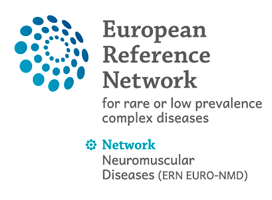24 Jul 4000
Intravenous immunoglobulins as first-line treatment in idiopathic inflammatory myopathies: a pilot study
Authors:
Johan Lim, Filip Eftimov, Camiel Verhamme, Esther Brusse, Jessica E Hoogendijk, Christiaan G J Saris, Joost Raaphorst, Rob J De Haan, Ivo N van Schaik, Eleonora Aronica, Marianne de Visser, Anneke J van der Kooi
Objectives.
We explored efficacy and safety of IVIg as first-line treatment in patients with an idiopathic inflammatory myopathy.
Methods.
In this investigator-initiated phase 2 open-label study, we included 20 adults with a newly diagnosed,
biopsy-proven idiopathic inflammatory myopathy, and a disease duration of less than 9 months. Patients with IBM
and prior use of immunosuppressants were excluded. The standard treatment regimen consisted of IVIg (Privigen)
monotherapy for 9 weeks: a loading dose (2 g/kg body weight) and two subsequent maintenance doses (1 g/kg
body weight) with a 3-week interval. The primary outcome was the number of patients with at least moderate improvement on the 2016 ACR/EULAR Total Improvement Score. Secondary outcomes included time to improvement,
the number of patients requiring rescue medication and serious adverse events.
Results.
We included patients with DM (n ¼ 9), immune-mediated necrotizing myopathy (n ¼ 6), non-specific myositis/overlap myositis (n ¼ 4) and anti-synthetase syndrome (n ¼ 1). One patient was excluded from analyses because of minimal weakness resulting in a ceiling effect. Eight patients (8/19 ¼ 42.0%; Clopper–Pearson 95% CI:
19.6, 64.6) had at least moderate improvement by 9 weeks. Of these, six reached improvement by 3 weeks. Seven
patients required rescue medication due to insufficient efficacy and prematurely ended the study. Three serious adverse events occurred, of which one was pulmonary embolism.
Conclusion.
First-line IVIg monotherapy led to at least moderate improvement in nearly half of patients with a
fast clinical response in the majority of responders.

